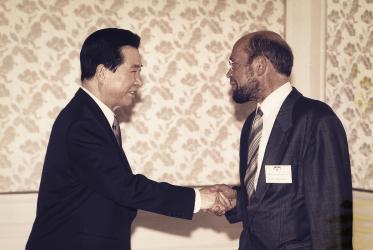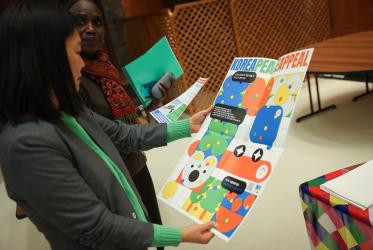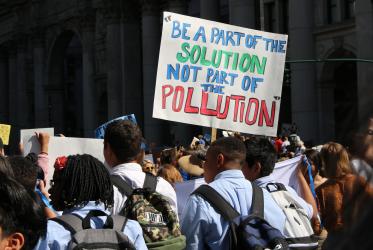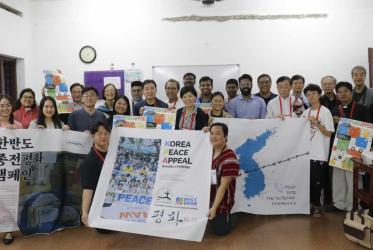How do you see the current status of relations between North and South Korea?
Prove: Clearly we have suffered a very serious reversal of the circumstances for the peace process on the Korean Peninsula in general. One reason for that is the way the peace process developed itself – the mismatch of expectations and assumptions, particularly between the USA and the DPRK, and a failure to take incremental steps of trust-building to provide a basis for further progress.
Among other things, the continued imposition of the most rigorous and severe sanctions regime that has ever been applied anywhere has had a serious impact not only in terms of humanitarian access, but also in terms of the political environment for progress towards peace – and while having demonstrably failed in the stated purpose of nuclear non-proliferation.
At the same time, the COVID-19 pandemic has gravely affected opportunities for practical face-to-face engagement, whether for political, humanitarian, development or ecumenical purposes. We don’t know when these opportunities will open, but we hope that the situation regarding the pandemic will alleviate, bringing improvement.
What is the role of churches in building a sustainable peace in this context?
Prove: One of the most important things that we as churches globally can do is continue to pray for peace and reunification, for a sustainable and peaceful coming together of the Korean people, and that they are made aware of this accompaniment in prayer by churches around the world.
The principle of the ecumenical movement’s engagement in this issue has always been that peace must be made between the Korean people – it won’t be made for them by others. Our role is to support and be in solidarity, to accompany and encourage them on this journey.
Even with no physical meetings, 2020 was a busy year in churches’ advocacy and peace-building initiatives for the Korean Peninsula worldwide.
Prove: Initiatives that we undertook in the course of last year, with events and gatherings marking the 70th anniversary of the start of Korean War, were really important expressions of global solidarity with the churches and people of the Korean Peninsula, despite the constraints of the pandemic.
We continue to support the role and leadership of the South Korean churches – the National Council of Churches in South Korea has really been in the vanguard of these efforts for peace for many decades.
Given the practical impossibility of meeting our North Korean partners - the Korean Christian Federation - last year, we haven’t been able to officially convene the Ecumenical Forum for Korea. However, we have remained in close communication with the members of the forum informally, and we are looking forward to convening again in 2021.
Is the interest of churches growing, to engage in the peace-building initiatives for Korea?
Prove: We see more partners from among churches and church-based organizations around the world expressing interest in participating in this multilateral forum convened by the WCC. There are partners who are engaged or interested in engaging in humanitarian and development work in North Korea, and churches that want to be active in solidarity efforts for peace on the Korean Peninsula. These partners are coming from an increasingly wide range of church families; we have growing participation from Roman Catholic as well as Evangelical and other partners in the forum.
On the other hand, more and more churches and church-related organizations working in relation to North Korea are facing increasingly severe constraints due to the sanctions, deeply impacting humanitarian access and the capacity to do diaconal work with North Korean partners.
Nevertheless, the interest and commitment is still there, and we are gathering a large number and a wide spectrum of churches and church-based partners that wish to contribute.
What do you see as priorities moving forward?
Prove: Given all the unknowns, it’s vital that we maintain hope and continue to pray. Despite the fact that there are so many obstacles and constraints in terms of communication and cooperation, we should never give up.
We cannot resile from our longstanding commitment to peace and reunification for the Korean people. The problem will continue to be a problem, it will continue to fester and present a threat to the security and the future for all people in the region, and the whole world, unless a peaceful and sustainable solution is found.
What is your hope for 2021?
Prove: Our hope and prayer for this year is that there will be resumed intensity of engagement and cooperation as the COVID-19 pandemic diminishes, and even more hopefully, that there will be renewed efforts for political dialogue as the new administration in the USA has settles in.
Our purpose is as simple, and yet as deep, as remaining in relationship and communication with our Christian sisters and brothers in North Korea – despite constraints that currently exist and that have long existed in the history of our engagement with them for peace and reunification.







